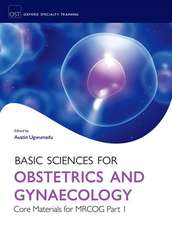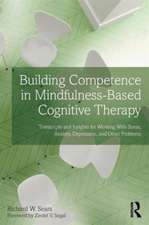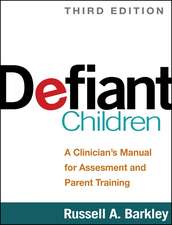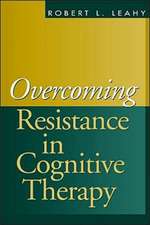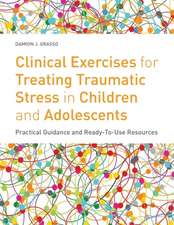Rewriting the Self: Psychotherapy and Midrash
Autor Mordechai Rotenbergen Limba Engleză Paperback – 31 mar 2004
Rotenberg argues that the foundations of what he calls a "dialogic" psychology of progress, as well as a pluralistic, free choice approach to psychotherapy, may be identified in Judaism's midrashic "metacode." From a practical, therapeutic perspective, a teacher or therapist would no longer be an elite interpreter of a student or client's past, authorized to give the only authentic analysis of that person's problems. Rather, he would be able to offer a variety of options, both rational and emotional. In Rewriting the Self, Rotenberg demonstrates his theory with several case studies of "rewriting" oneself from both the Midrash and Talmud. He contrasts this method with other psychotherapies. This volume is the third in a trilogy (the previous two, Damnation and Deviance and Hasidic Psychology, are also published by Transaction) that seeks to present a "dialogistic" psychology as an alternative framework to the perspective that predominates in Western social sciences. It is an original work that will be welcomed by psychotherapists, social scientists, and students of theology.
| Toate formatele și edițiile | Preț | Express |
|---|---|---|
| Paperback (1) | 431.35 lei 6-8 săpt. | |
| Taylor & Francis – 31 mar 2004 | 431.35 lei 6-8 săpt. | |
| Hardback (1) | 1000.27 lei 6-8 săpt. | |
| Taylor & Francis – 28 iun 2018 | 1000.27 lei 6-8 săpt. |
Preț: 431.35 lei
Nou
Puncte Express: 647
Preț estimativ în valută:
82.56€ • 85.86$ • 69.08£
82.56€ • 85.86$ • 69.08£
Carte tipărită la comandă
Livrare economică 15-29 martie
Preluare comenzi: 021 569.72.76
Specificații
ISBN-13: 9780765805676
ISBN-10: 0765805677
Pagini: 236
Dimensiuni: 152 x 229 x 14 mm
Greutate: 0.34 kg
Ediția:1
Editura: Taylor & Francis
Colecția Routledge
Locul publicării:Oxford, United Kingdom
ISBN-10: 0765805677
Pagini: 236
Dimensiuni: 152 x 229 x 14 mm
Greutate: 0.34 kg
Ediția:1
Editura: Taylor & Francis
Colecția Routledge
Locul publicării:Oxford, United Kingdom
Cuprins
1: Introduction: Living through Midrashic Interpretation; 2: Narrative “Missionarism” in Dialectic Psychotherapy; 3: The Midrash and “Biographic Rehabilitation”; 4: Philosophies of History and the Psychology of “Self-Renewal”; 5: The Oedipal Conflict and the Isaac Solution; 6: The “Non-Melting Pot”; 7: The Hermeneutic Dialogue and Interhemispheric Balance; 8: Linear Conversion versus Cyclistic Teshuvah: An Empirical Differentiation; 9: The Midrashic Dialogue between Past and Future; 10: The Temporal Dialogue as “Chutzpah Therapy”
Descriere
While the term midrash--from the Hebrew darash, searched or interpreted--can refer to both legal and extralegal scriptural exegesis, it most commonly refers to symbolic legends, stories, and parables used to make moral or ethical concepts accessible to the layman

